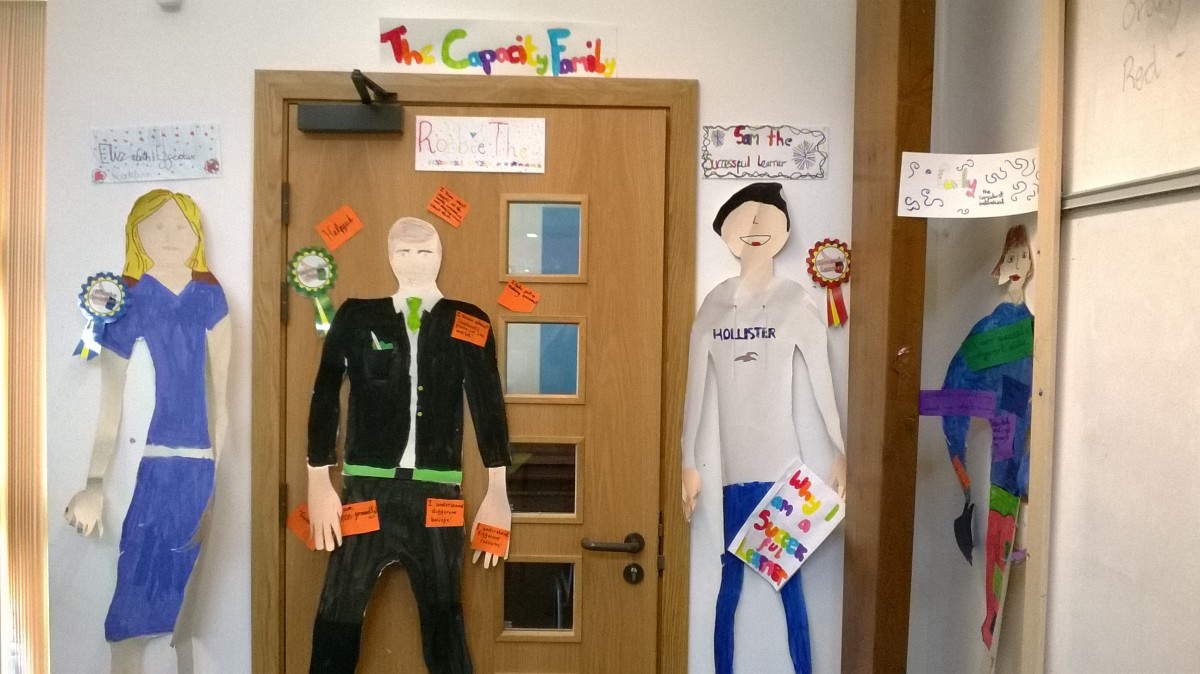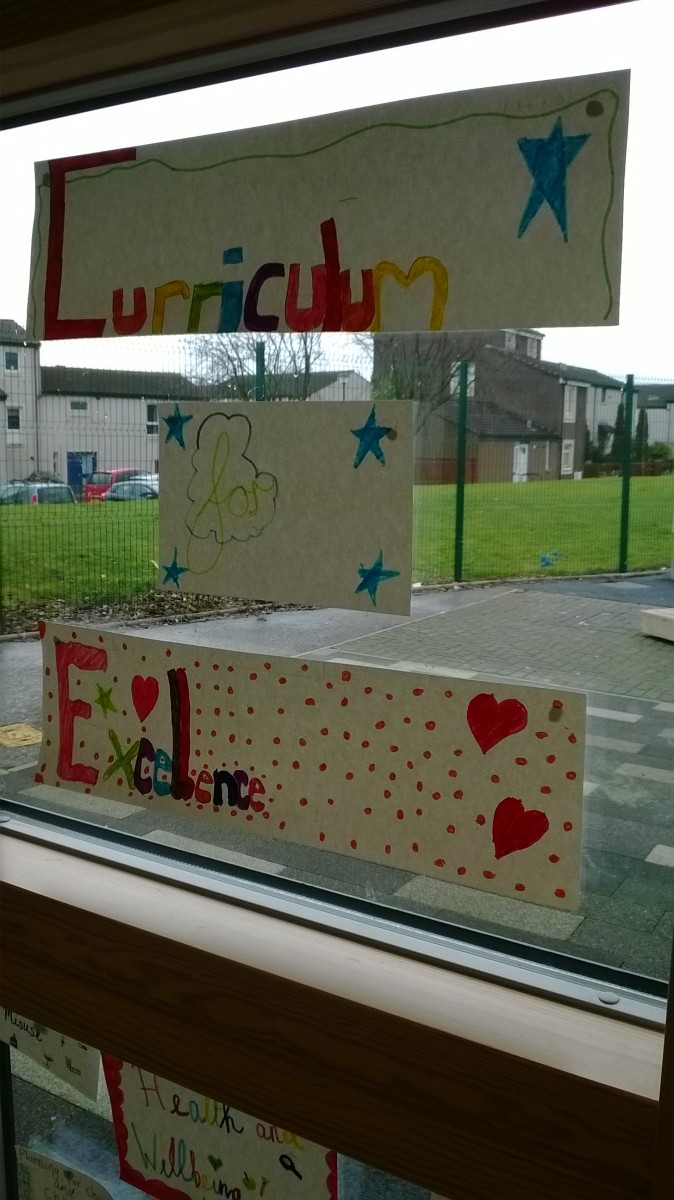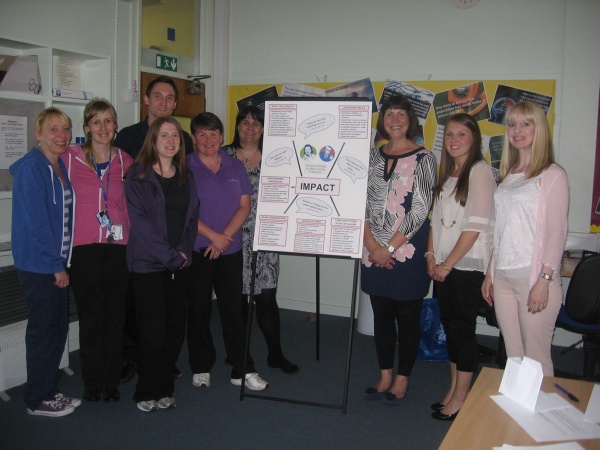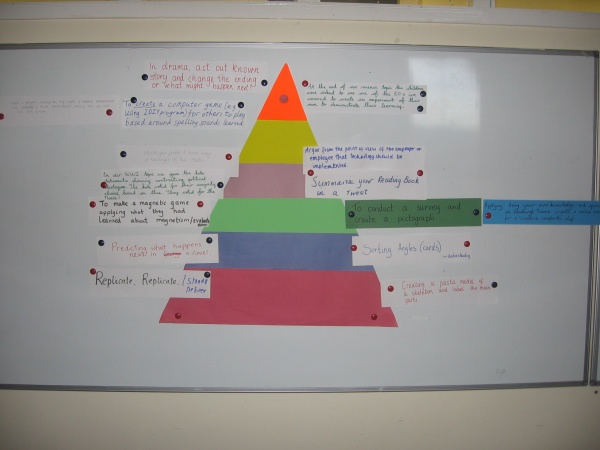 On Thursday 3rd April 2014 Falkirk Teaching for Deep Learning programme facilitators reviewed the impact of the programme with Yvonne McBlain, Curriculum Support Teacher. Falkirk’s team of facilitators noted that the sessions they have delivered in their schools so far have had the following impact:
On Thursday 3rd April 2014 Falkirk Teaching for Deep Learning programme facilitators reviewed the impact of the programme with Yvonne McBlain, Curriculum Support Teacher. Falkirk’s team of facilitators noted that the sessions they have delivered in their schools so far have had the following impact:
Learners are more aware of intended learning and children are now becoming more skilled in generating SC.
We are more aware of the HOTS vocabulary and using them in our LI & SC.
The children are more familiar with the terminology.
Staff are more creative with embedding HOTS in the learning.
More opportunities for sharing good practice.
More opportunities for doing peer visits.
Teachers have been made aware of the importance of professional dialogue.
Staff are valuing the opportunities for professional dialogue.
We now have solution-focused meetings.
Teachers decide on an action from the session to focus on.
Teachers are learning from each other – practice/dialogue
Programme has developed devolved leadership in schools and has developed facilitators’ presentation skills/confidence/professional knowledge of own craft.
General practice of dedicated professional – skilled in delivery of sessions & building capacity.
Distributive leadership opportunity through delivery of sessions.
While making these assertions about the impact of the programme, the group identified the following sources of evidence:
Gateway feedback/evaluations
Teachers created their own action plan linked to the session.
5 teachers will have observed other teachers by the end of the session. This has never happened before!
Start of session staff feedback on previous actions & impacts – share in pairs/lollipop sticks/graffiti board – “post its” kept by facilitators as evidence.
Limited – barriers of school culture/workload
Lack of understanding of the possible impact but hopefully will develop through ERD process.
Traffic lighting – daily plans, QA feedback for LI & SC
Feedback, monitoring visits, evaluations, child’s learning, child’s awareness of HOTS.
In addition, facilitators are also beginning to compile specific evidence of impact on their colleagues and pupils within their establishments. Mary Jalland facilitated Session 6 – Using Higher Order Skills Taxonomies as part of Teaching for Deep Learning (Click to view), and Session 14 – Creating a Positive Learning Environment which Supports Teaching for Deep Learning (Click to view). Click here to read how Mary and her colleagues at Westquarter PS noted their impact.
Iain Farrington facilitated Session 6 and Session 3 – Effective Questioning as part of Teaching for Deep Learning (3 Questioning click to view). As a result of these, Iain and his colleagues are trialling the use of a higher orders skills planning sheet as part of their planning processes (Click to view). Together they have integrated a range of changes to their practice in order to deepen pupil understanding of the skills they are developing. In the longer term, this will support pupils in recognising and recording their own progression and achievement, and help them maintain a strong learning log and/or profile.

 Teachers, early years officers, and pupils across Falkirk Children’s Services may be linking their learning at some point this year to the commemoration and centenary of World War 1. Education Scotland have published an update (click to view) with links to teaching and learning resources which might prove useful. Click here to visit Education Scotland “WWI in Scotland” blog where there are lots more valuable materials. In addition, by clicking here, you can access the Scottish Government’s WW1 Commemoration Panel which has a huge variety of links to very current events, information and media.
Teachers, early years officers, and pupils across Falkirk Children’s Services may be linking their learning at some point this year to the commemoration and centenary of World War 1. Education Scotland have published an update (click to view) with links to teaching and learning resources which might prove useful. Click here to visit Education Scotland “WWI in Scotland” blog where there are lots more valuable materials. In addition, by clicking here, you can access the Scottish Government’s WW1 Commemoration Panel which has a huge variety of links to very current events, information and media.










